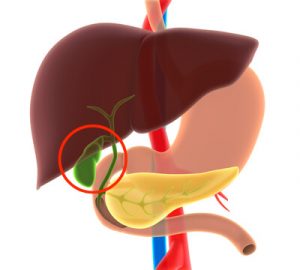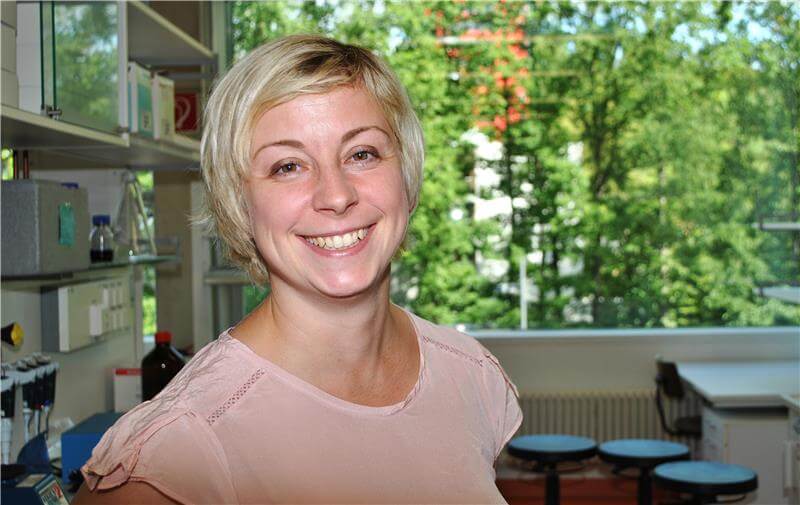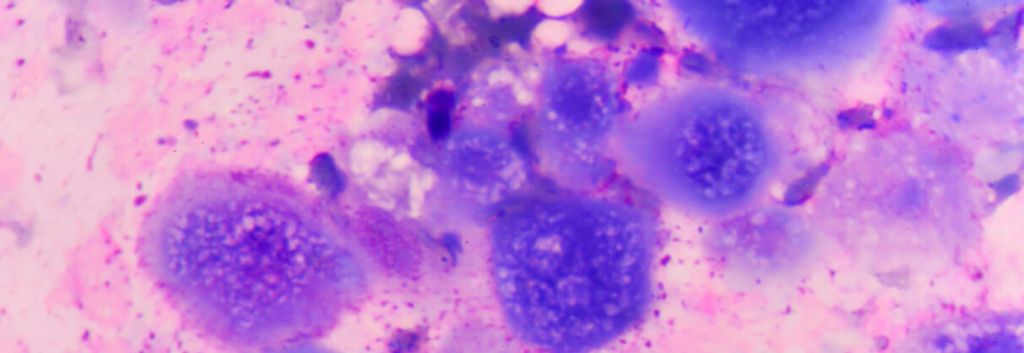Research has identified a protein that drives tumor growth, which opens up a new therapeutic target for gallbladder cancer.
Gallbladder cancer is often detected too late to be treated effectively as it shows few symptoms. Research, published in Oncotarget, has identified a pathway that could help to improve prognosis and treatment of the disease. Sonja Kessler discovered a group of proteins involved in tumor growth, which could be used to get a better idea of how the cancer will progress.

The gallbladder is a small organ that stores bile, a fluid produced by the liver that helps break down fatty foods. Gallbladder cancer is rare, with around 980 cases in the UK each year. 5-year survival rates for patients are good at early stages but drop quickly once the cancer spreads – as is the case for all cancers. As gallbladder cancer is difficult to detect, 90% of cases are diagnosed once it has spread.
Three proteins, IMP1, 2 and 3, are known to play an important in the embryo, helping to ensure rapid growth and development. After birth, these proteins are no longer necessary and should be switched off. But, it turns out that they can be switched on again, which can cause a lot of harm by promoting cell proliferation, driving tumor growth. Kessler has linked these proteins to gallbladder cancer, which could help to improve treatment.

The study was carried out in collaboration with Johannes Haybaeck of the University of Magdeburg, who has built the world’s largest collection of gallbladder cancer tissue samples. The research identified that large amounts of IMP2 in cells causes tumors to grow faster. “The tumor grows faster when the cells contain larger amounts of the IMP2 protein. And in those cases patient prognosis is poorer… ” explained Kessler.
Now the challenge is to find a way to target the protein and thankfully the cancer field is full of exciting technology that could be used. One approach could be to block the activity of the proteins using antibodies. A leading antibody developer like MorphoSys may jump at the chance to attack an exciting new target. If regular antibodies were unable to track down the proteins, Ablynx’s nanobodies or Complix’s alphabodies could hold the key.
Images – toeytoey / shutterstock.com; Nerthuz / shutterstock.com; University of Saarland





